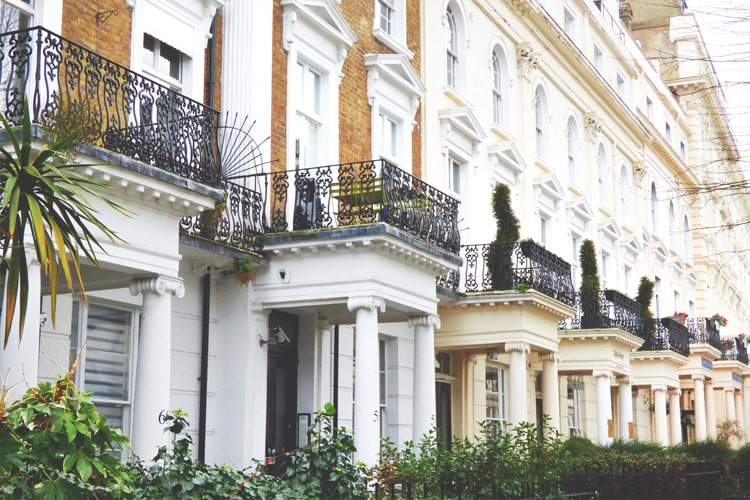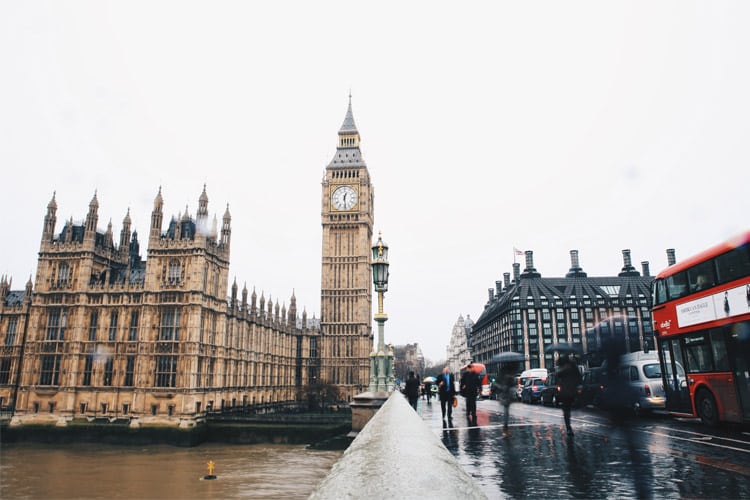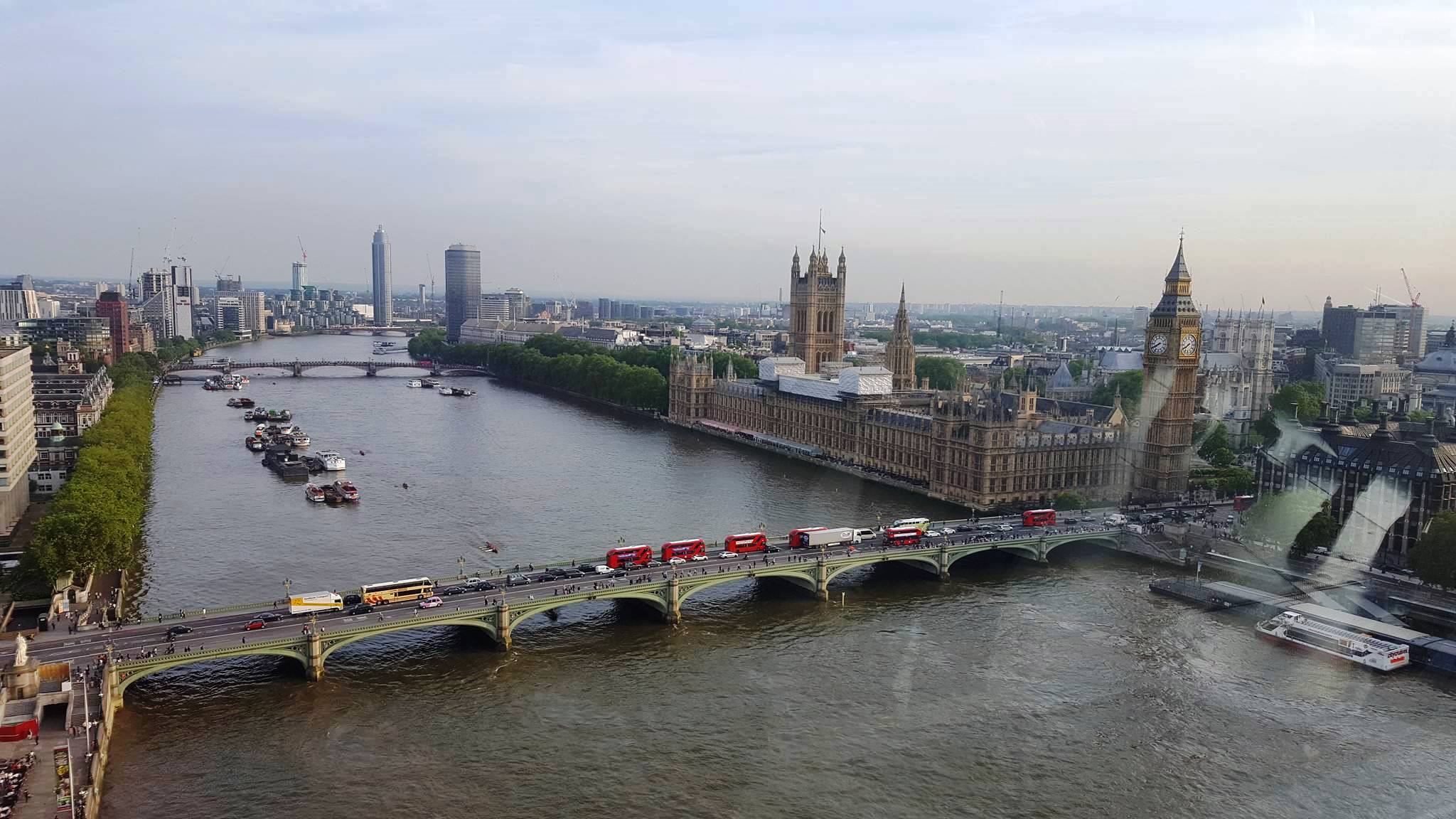Become a homeowner in London in no time with this 5-step guide…
Given that rents are still astronomically high and houses prices show no signs of slowing, many young Londoners assume that it’s completely impossible to make it onto the property ladder in our notoriously expensive capital. For example, you can buy a one bed flat in London now for 300k, however generations back it was a lot more affordable. (You can check out this calculator we found that shows how much their property has increased in value over a period of time.) But, while buying a home in London is never going to be a piece of cake, it’s certainly not impossible to become a homeowner in London, either.
With a solid savings plan, the right mortgage deal, and plenty of hard work, owning a home can be within your grasp. If you’re determined to buy your first home in the next few years, then keep reading to discover the five essential steps you need to take to make your dream come true and become a homeowner in London.

Work out how much you’ll need
Before you can start house-hunting, you’ll need to work out exactly how much you need to save to cover the cost of the deposit (usually 5–10% of the purchase price), as well as the other fees associated with moving.
The exact figure will depend on the size of your deposit, which is dictated by the overall amount you hope to borrow: you can work this out using The Mortgage Genie’s affordability calculator. The bigger the deposit, the lower your monthly payments will be, so it’s cost-effective to save up for as long as you can.
While the deposit is easily the most expensive part of buying a home, you’ll also need to build the extra costs of moving into your budget before you design a savings plan. These will include:
- Conveyancing: This is the fee the solicitor will take for handling the legal side of the buying process. It can cost in the region of £700–2000, depending on how long the process takes, and this will usually include the cost of searches and other miscellaneous fees.
- Surveys: Most lenders will require a valuation survey before they agree to release the funds: you can expect to pay anywhere between £150–£1,500 for this, depending on the size and age of the property. You might also want to carry out an independent survey (sometimes called a homebuyer’s report) to check there won’t be any expensive issues with the property later on. Costs for this start from around £400, but you may be able to use the report’s findings to negotiate a lower purchase price.
- Stamp Duty Land Tax: First-time buyers don’t have to pay any SDLT up to £300,000, and you’ll also qualify for tax relief if the total purchase price is under £500,000. Above this, it’s charged at the usual rates (go.uk).
- Moving costs: Removals vans will charge anything from a few hundred pounds to a few thousand, depending on how much stuff you have, and how far you need to move.
Choose an affordable location
If you want to buy your first home in London, then you may need to face up to the fact that you’re probably not going to be able to afford a property in a pricey central area (well, at least not yet). Most lenders are only willing to let you borrow up to 4–5 times your salary, so bear this in mind when deciding on a location.
As a rule of thumb, the further away from central London you get, the lower the average property price. Those willing to buy in more out-of-the-way locations — in up-and-coming suburbs like Newham, Sutton, and Bexley — could find properties for as little as £300,000 (Homes & Property). So, if you’re struggling to find to find a home you can reasonably afford, it’s a good idea to cast your net a bit further out.
You may also like: 5 Destinations for a Last Minute Spa Break in London

Create a savings plan
If many media outlets are to be believed, millennials are more interested in frittering our money away than we are in saving up for a deposit. But, while the housing crisis currently faced by today’s young people can hardly be blamed on a penchant for expensive coffees, it’s certainly true that you won’t stand a chance of reaching your goal without a solid savings plan. So, if you’re serious about getting on the property ladder, you’ll need to devise a monthly budget — and stick to it.
Work out your average monthly living costs, and then decide on a sum to set aside every month. The rule is simple: the more you can put away per month, the sooner you’ll meet your target amount. Once you’ve got a decent amount in the bank, be sure to use of your yearly tax-free ISA allowance: this will help your cash accrue value, and you won’t need to pay tax on interest earned. Keeping your savings locked away in an ISA will also help you to resist the urge to dip into them if money is running low.
Make the most of government schemes
If you simply don’t think you can afford a traditional mortgage on your current salary, then don’t get disheartened. The London Help to Buy scheme has been specially designed to help first-time buyers on slightly lower incomes realise their dream of owning a home in the capital, especially if they can’t afford to pay a huge deposit. Under the scheme, all you need to do is pay a 5% deposit, and the government will provide an equity loan up to the value of 40% of the overall purchase price.
To qualify, you must be a first-time buyer, and the property you choose needs to be a newly-built home with a purchase price of up to £600,000. But you’ll need to hurry — the scheme is currently only available until 2020, although there’s a chance the government will renew it before this happens enabling more people to become a homeowner in London.
You may also like: Five Places to go to survive the heat in London

Sort out your credit rating
Once you’ve saved up the deposit and found your dream home, you’ll need to apply for a mortgage. When deciding whether or not to approve your application, banks and building societies will use a number of different criteria to decide what level of risk you present — in other words, they’ll want to check out your history with debt, to get a feel for how likely you are to default on your payments. That means, you’ll need to check that your credit history is up to scratch.
You can request a copy of your credit record for just £2, so it’s a good idea to apply for a copy when you start saving. This way, if you have any problems, you’ll have plenty of time to sort them out. If your credit rating is looking less than peachy, there are a number of different ways to give it a boost: simple things, like paying off any outstanding credit card debts and registering on the electoral roll, can all help to improve your score. You can learn more about cleaning up your credit history in this guide from MoneyFacts.

Worried you’ve been priced out of the property market? Think again. With a smart financial plan, and a little perseverance, buying a home in one of London’s more affordable (and trendy) suburbs is still well within your reach.

